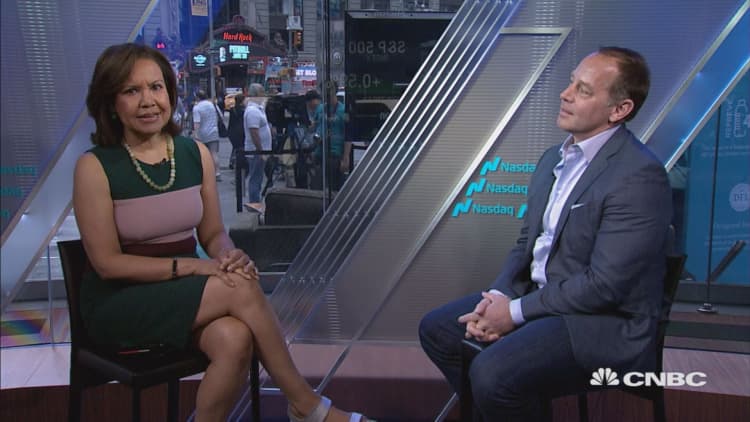
Technology has made on-demand services a reality for everything from food deliveries to gym classes and car-sharing. What if you could have on-demand health coverage for big-ticket procedures like knee surgery?
On-demand health insurance seems like an oxymoron, but digital health insurance firm Bind is betting that by structuring health plans so that people can add coverage and pay for it when they need it, companies and employees can save money in the long run.
“It’s not intuitive for people, but I think when we started this we thought, ‘how do people really use the health-care system?’ And we used it in an on-demand way,” explained Tony Miller, co-founder and CEO of Bind.
The two-year old start-up is not a full-fledged insurer, it administers benefits for self-insured employers using UnitedHealth Group’s provider networks and data analytics. Using its own proprietary algorithms, powered by machine learning, Bind discovered that it could break out certain procedures and reduce health benefit costs more effectively than with a high-deductible plan. It is backed by Ascension Ventures, Lemhi Ventures and UnitedHealthcare.
Plans are designed with basic co-pays and no deductibles for core medical coverage. In addition to free preventive care required under the Affordable Care Act, Bind's plans cut out deductibles for primary care and specialist visits, maternity coverage, hospital care, medications and even cancer treatment. Co-pays are priced on a sliding scale — from $15 for a visit to retail clinic to $100 at an urgent care facility.
The big-ticket out-of-pocket costs kick in for elective procedures, such as knee replacement or back surgery. The extra co-pay for those procedures is based on the total cost, with consumers being given the full price of the procedure up front and no surprise bills on the back end. The co-pay can be structured so the worker can pay it off through payroll deductions, like a premium.
By outlining the total costs, Bind said it helps employees generate 10 to 15 percent in savings for themselves and for their employer compared to traditional out-of-pocket deductible plans.
“A market might be $6,000 to $24,000 for knee arthroscopy,” explained Miller. “What Bind does is says (for) the $6,000 performer — you only have to pay $1,000 to have access to them. If you want to go to the $24,000 knee arthroscopy with no difference in quality, no difference in performance, you have to pay $6,000 as a consumer.”
“What happens is the consumers actually go and buy the more cost-effective provider and they save money. But more importantly, the entire pool saves money ... we save $18,000 for the group,” he said.
That was the way high-deductible plans were supposed to work, with consumers making the most cost-effective choice. Miller should know. He co-founded Definity Health in the late 1990s, which helped pioneer so-called consumer directed health plans; UnitedHealth bought that firm in 2004.
Does he worry that employers could use Bind’s on-demand plans to skimp on core benefits, and shift more costs to their workers? He does.
“What I would worry about is, taking this very novel plan design and if someone wanted to create a skinny plan out of it,” which he admitted would defeat the goal of Bind plan designs.
“Let’s make sure we fund the things we all need in health insurance and make sure that’s a part of everyone’s core benefit,” he said.
Bind has so far signed up small regional employers for its plan, but hopes to launch with a large Fortune 500 company for 2019 coverage.


